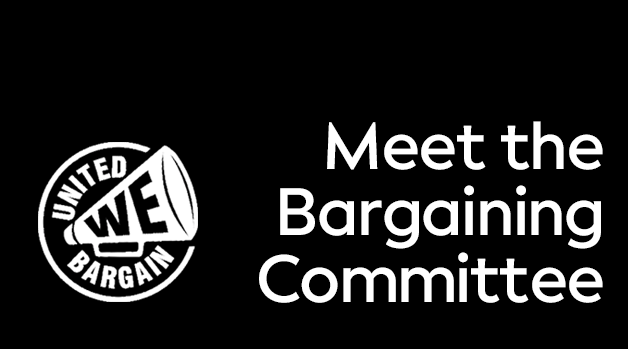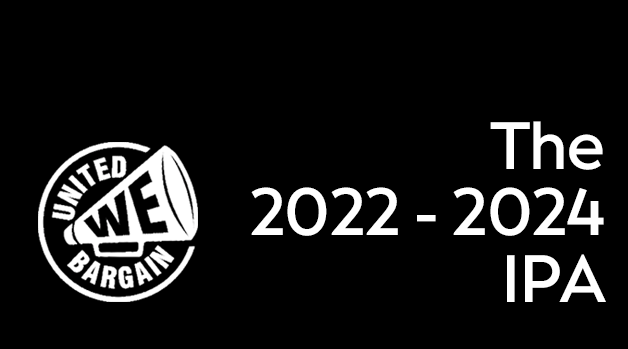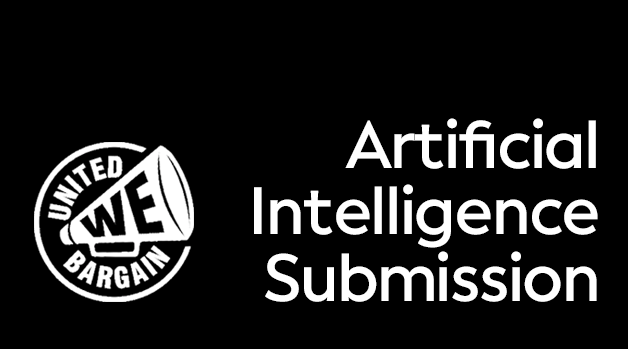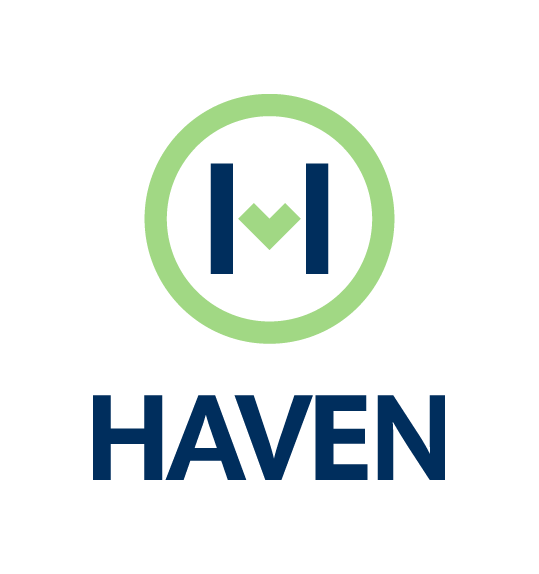Collective bargaining is the negotiation process between a union and an employer.
The goal of the negotiation is to reach a collective agreement.
This is a written agreement that sets out the employment terms and conditions for unionized employees, as well as the rights, privileges and duties of the union, employer, and employees.
The Independent Production Agreement (IPA) is one of ACTRA's most important collective agreements. It defines working terms and conditions, and minimum rates for ACTRA members working in film, television and digital media outside of British Columbia and Yukon where the UBCP/ACTRA Master Production Agreement applies. Other ACTRA Collective Agreements include the National Commercial Agreement (NCA), and our several Broadcaster Agreements.
The IPA is the collective agreement between the performers, represented by ACTRA, and the producers, represented by the Canadian Media Producers Association (CMPA) and the Association Québécoise de la Production Médiatique (AQPM). The agreement establishes "the minimum rates and working conditions under which performers may be engaged in Productions produced by any method in Canada or on location outside Canada."
The current IPA expires on December 31, 2024.
The term of each renewal of the IPA is, itself, subject to negotiations between ACTRA and the producers, but is generally three years.
Under the IPA, either party can give notice to the other party in writing at least six months prior to the termination date. The Parties agree to meet within 45 days of notice having been given and to commence to bargain in good faith and to make every reasonable effort to enter into a new Agreement.
With the many challenges facing our industry, negotiations with the Canadian Media Producers Association (CMPA), the Association Québécoise de la Production Médiatique (AQPM) will be critical this time around.
A bargaining team of 11 members and 11 alternates has been selected with democratically weighted representation from ACTRA branches.
The bargaining team is chaired by ACTRA National President Eleanor Noble and led by ACTRA's National Executive Director and Chief Negotiator Marie Kelly.
Meet your bargaining committee here.
We negotiate the collective agreement with two main entities and a third party that plays a key role behind the scenes.
The first entity is the Canadian Media Producers Association (CMPA), which represents English-language producers across Canada.
The second is the Association québécoise de la production médiatique (AQPM), based in Quebec, which represents French-language producers who also produce in English. While that might seem a bit strange, they also represent producers who create content in French, but AQPM contracts are negotiated separately with Union des Artistes (UDA), also based in Quebec.
The third party, although not a signatory, represents the largest financial interests—the Alliance of Motion Picture and Television Producers (AMPTP). They represent major American studios like Netflix, Disney, Paramount, CBS and others. These studios produce content in Canada and are members of the CMPA because they have established Canadian branches. Even though these branches often operate under different names, they are arms of the American producers and have voting rights through the CMPA. This is why the AMPTP is involved—to represent their interests.
While bargaining continues, the terms and conditions of the current IPA continue to apply.
If bargaining continues beyond December 31, 2024, the terms and conditions of the current IPA will continue to apply until a new agreement is reached.
In advance of each round of negotiations, ACTRA seeks the input of members who have worked under the collective agreement throughout the most recent effective agreement. This is the first opportunity for issues and concerns to be addressed and underscores areas of prioritization for upcoming negotiations.
This research results in the branches and ACTRA National compiling a set of proposals which address the priority issues and concerns brought forward. These proposals are then shared the negotiating team to discuss in depth in Wages & Working Conditions Meetings.
The negotiating team then votes to determine which proposals will form the final proposal package to be tabled in negotiations. Any proposals that do not make it into the final package do get filed for consideration in future rounds of negotiations.
Every round of negotiations presents different challenges. This round, ACTRA members have expressed concerns about the residual model being out of date, wage increases not reflecting the cost of living and record inflation levels, and the threat of artificial intelligence (AI).
The threat of AI replacing human creativity is a battle for workers globally. In our industry, the unions and guilds are united on this issue. SAG-AFTRA’s historic strike established boundaries around the use of AI. It is now ACTRA’s turn.
Our focus will be on three key issues: consent, compensation, control. ACTRA is committed to establishing fair industry standards.
Yes. ACTRA went on strike in January 2007 to define rates for work distributed over the Internet and mobile phones, which the producers wanted for free. The success of that six-week strike secured performers' right to payment and established minimum terms for the exploitation of online use that has since grown to become the largest share of industry revenue. ACTRA led this charge, getting terms before SAG-AFTRA. To learn more about the 2007 strike, please read ACTRA Magazine's
Winter 2007 issue (page 13) and
Summer 2007 issue (pages 4 - 7).
A strike mandate is a very important and effective tool in negotiations. It shows our commitment and readiness to act if needed. It is our opportunity to show the other side that we mean business. If our negotiating team seeks a strike mandate, we would encourage members to vote “yes” to demonstrate to the CMPA and AQPM that members are willing to stand together to fight for what is right. A "yes" vote for a strike mandate does NOT mean ACTRA will go on strike.
As a member, it is important to stay connected, engaged, and supportive of our union during negotiations. The recent, formidable negotiations faced by SAG-AFTRA, the Writers Guild of America, and the Writers Guild of Canada, offered us a blueprint of the power of solidarity.
On behalf of our negotiating team, we may issue a call to action, so stay connected by reading your emails, and following and sharing our posts on social media. Help us by keeping your ACTRA friends and colleagues informed. Our collective strength feeds the power our bargaining team needs for negotiations.





